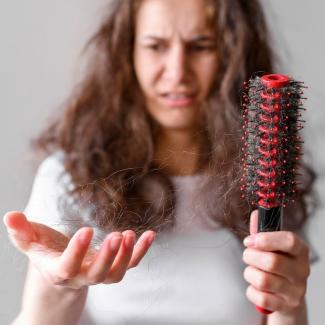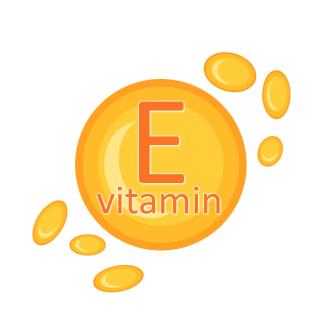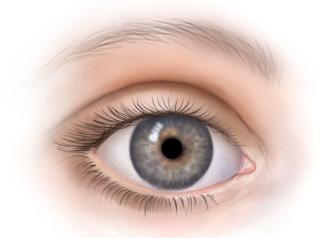
Biotin, also known as vitamin B7 or vitamin H, is a water-soluble vitamin that plays a critical role in the body’s metabolism, particularly in the synthesis of fatty acids, glucose, and amino acids. Biotin is essential for the health of your hair, skin, and nails, making it a popular choice for those looking to combat hair loss and improve hair quality. In recent years, biotin supplements and products have gained popularity for their perceived benefits in promoting hair growth, especially for individuals experiencing hair thinning or loss.
Discover the Secrets of Biotin
The connection between biotin and hair health stems from biotin’s role in keratin production. Keratin is the protein that makes up hair, skin, and nails. By supporting the infrastructure of keratin, biotin helps maintain the strength and health of these tissues. Biotin deficiency, although rare, can lead to brittle nails, thinning hair, and even skin rashes.
How Does Biotin Work on Hair Loss?
Biotin's role in hair health is mainly associated with its ability to enhance keratin structure. When your body has enough biotin, your hair follicles may be better equipped to produce strong, healthy strands of hair. Some studies suggest that biotin supplementation can help those who are biotin-deficient regain normal hair growth. However, for people who already have sufficient biotin levels, adding more biotin may not significantly impact hair growth.
Scientific Evidence
Research published in Skin Appendage Disorders in 2017 found that individuals with underlying biotin deficiency saw improvements in hair growth after supplementation. However, it's important to note that biotin does not address the root causes of hair loss such as hormonal imbalances, genetic factors, or autoimmune disorders.
Does Shampoo with Biotin Really Work Against Hair Loss?
Biotin shampoos are marketed as a solution for hair loss, but there is limited scientific evidence to support their efficacy in treating hair thinning or loss. Topically applied biotin is unlikely to penetrate the scalp deeply enough to impact hair follicle health. While biotin shampoos can make hair appear thicker and healthier by coating the hair shaft, they don’t directly affect hair growth from the root.
Effective Recovery Methods
For individuals dealing with hair loss, the most effective approaches typically involve addressing the underlying cause. These methods include:
- Medical Treatment: Depending on the cause of hair loss (e.g., androgenetic alopecia or stress-induced hair loss), treatments like Minoxidil or Finasteride may be prescribed.
- Nutritional Supplementation: If a deficiency in biotin or other nutrients is suspected, supplementation can help restore hair health.
- Lifestyle Changes: Reducing stress, improving diet, and taking care of scalp health can also support hair recovery.
Best Practices for Using Biotin
- Dosage: For those with a diagnosed biotin deficiency, supplementation with 30-100 mcg daily is generally recommended. For hair health, biotin supplements typically range from 5,000 mcg to 10,000 mcg.
- Consistency: Biotin’s effects are not immediate. You should consistently use biotin supplements for at least three to six months to see noticeable improvements in hair strength and thickness.
- Balanced Diet: Rely on a diet rich in biotin-containing foods as your primary source of this vitamin before turning to supplements.
Can I Get Biotin from Food, or Where Can I Get It?
Yes, biotin can be obtained from a variety of foods, many of which are commonly available. Foods rich in biotin include:
- Egg yolks
- Nuts and seeds (especially almonds, walnuts, and sunflower seeds)
- Legumes (like lentils and beans)
- Salmon
- Whole grains
- Leafy greens
- Avocados
- Dairy products
Including these foods in your diet can help ensure you're getting enough biotin naturally. For most individuals, a balanced diet will provide sufficient biotin without the need for supplements.
What Home Care Measures Are Appropriate and How to Implement Them?
Home care for improving hair health while addressing hair loss involves a combination of practices that focus on nourishing both the scalp and hair follicles. Effective methods include:
- Scalp Massage: Regular scalp massages can improve circulation to the hair follicles, promoting healthier hair growth.
- Natural Oils: Using oils like coconut oil, castor oil, or argan oil on the scalp can help maintain moisture and prevent damage to hair shafts.
- Proper Hair Washing: Avoid washing hair too frequently, as this can strip natural oils. Opt for gentle, sulfate-free shampoos that protect hair health.
- Minimize Heat and Chemicals: Reduce the use of heat styling tools and chemical treatments that can weaken hair and cause breakage.
What About Minoxidil?
Minoxidil is an over-the-counter topical treatment that is widely used to treat androgenetic alopecia (pattern hair loss) in both men and women. Minoxidil works by increasing blood flow to hair follicles, extending the growth phase (anagen) of hair. This leads to thicker, longer hair growth over time.
Scientific Support
Studies have consistently shown that Minoxidil is effective in promoting hair regrowth in areas affected by thinning, with a success rate of around 40-60% in individuals using it consistently for several months. It must be applied daily, and stopping treatment may lead to the loss of regrown hair.
What About Finasteride?
Finasteride is an oral prescription medication that is primarily used to treat male pattern baldness. It works by inhibiting the conversion of testosterone to dihydrotestosterone (DHT), the hormone responsible for shrinking hair follicles and causing hair loss in individuals with androgenetic alopecia.
Scientific Support
Research published in The American Journal of Clinical Dermatology shows that Finasteride reduces DHT levels by around 60%, effectively slowing hair loss and promoting regrowth in 85% of men who use it for a year or more. However, Finasteride is less commonly prescribed for women due to its hormonal effects.
Biotin plays a vital role in hair health, especially for those who are biotin-deficient. While biotin shampoos may not be effective for significant hair regrowth, biotin supplements can support healthy hair growth when used consistently. For individuals dealing with more severe hair loss, treatments like Minoxidil and Finasteride offer more targeted solutions backed by scientific research. To maintain optimal hair health, it is essential to combine these treatments with a nutritious diet and proper hair care practices at home.






